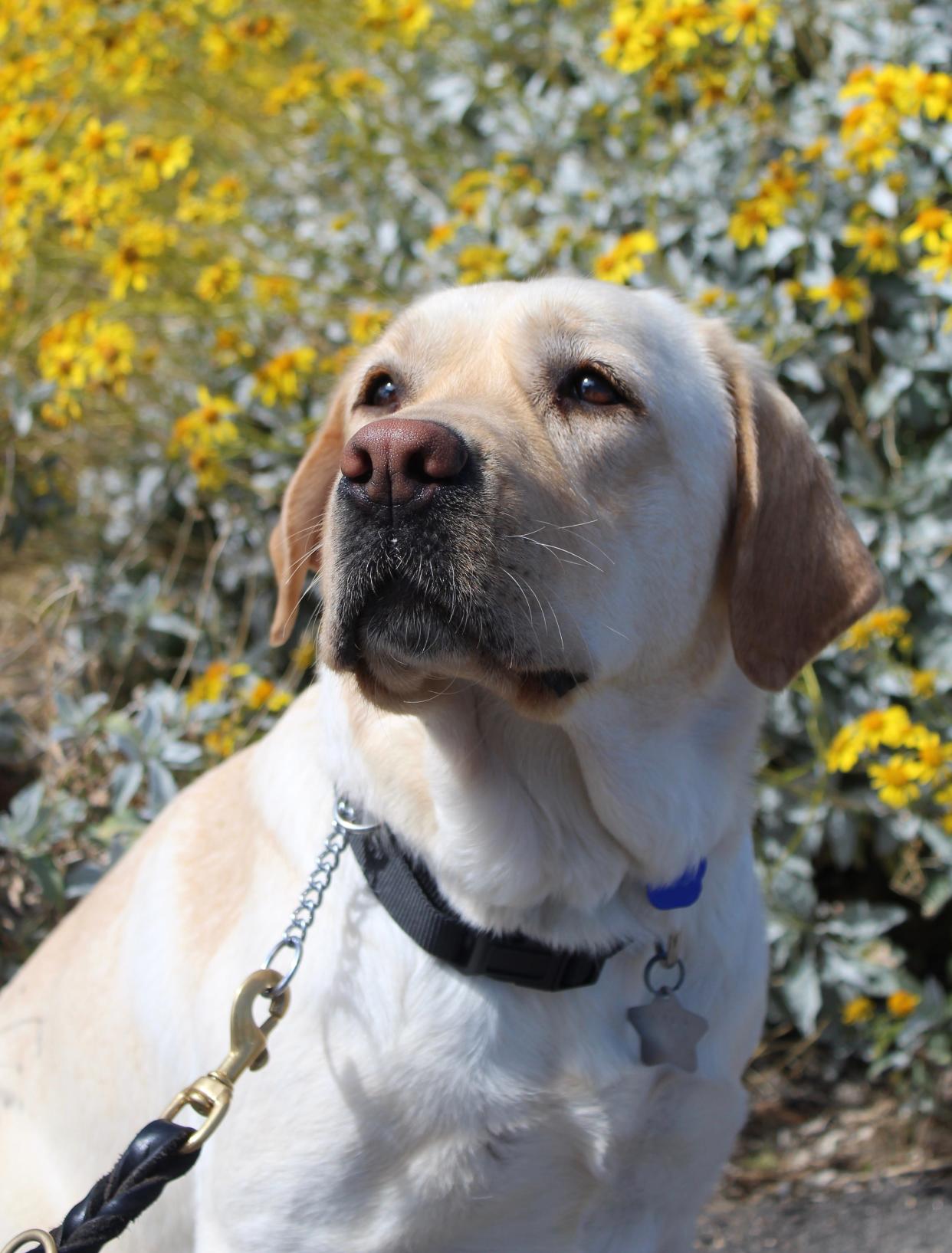Want to help a blind person? Consider raising a puppy

Volunteer puppy raisers, lift your human paws. Guide Dogs of the Desert is eagerly seeking volunteers as it heads into the new year.
“We’re looking for people who can take a puppy into their house for up to 18 months,” said Robert Maher, executive director of Guide Dogs of the Desert. “They'll do the basic dog obedience with that puppy and then return it to us. We’ll come back in the form of guide dog training, but we can't help people we need to help without really having these puppies get a good foundation.”
To be sure, the moment you see a guide dog, your heart melts. How can a canine so effectively embody compassion, attentiveness, dedication, and care for humans? All that gets effectively carried out in exceptional detail at Guide Dogs of the Desert, which is celebrating its 50th year providing mobility, companionship and independence for the blind.
Maher said there are currently approximately 100 volunteer puppy raisers on hand and that the organization looks to place about 25 Guide Dog teams. At times, home placement factors into the equation.

“We'll actually take the dog to the person's home, and we'll stay there for two weeks of training the person with the dog,” Maher said, noting that not all dogs in training will be placed as a guide dog in their “first career.”
“Some dogs just don't have the temperament or will to do guide dog work,” he said. “So, we actually put them into a ‘change of career,’ and the first step is to become a support canine dog.”
The organization provides support canines for Palm Springs Police Department, Desert Hot Springs Police Department, and the Garden Grove Police Department.
“The Garden Grove dog went out to the Uvalde, Texas, to offer emotional support to the children who were out there — as well as the police officers — during that horrific school shooting,” Maher said. “So, those dogs that don’t become a dog to the visually impaired, we set aside in another line of work. The support canine program is just another big part of the school and the work we do.”
Guide Dogs of the Desert works with a variety of canines — from breeding and raising standard poodles, which are hypoallergenic, to labradors and more.
“What also makes us unique is our great approach to match the individual dog with the individual student,” Maher said. “We’re attentive about working with people who have extra or other disabilities, other than visual impairment. We try to make sure that everyone who needs a dog gets a dog.”
Recently, Guide Dogs of the Desert received grants from the Inland Empire Community Foundation through the Gracie Gagnet Memorial Fund and the Joyce A. Montgomery Donor Advised Fund. Those resources will be streamlined into the organization’s general operating support funding. Recent funds were “incredibly valuable,” Maher noted, adding that sometimes restrictions are placed on how funding can be used.
One of the main things the organization is currently undertaking is renovating several campus buildings, which are about 40 years old. Dorms exist on campus, too, and those factor into the renovations.
“As anybody knows, things go out of style,” Maher said. “So, when we have students coming and spending up to 28-32 days here, it's nice for them to have a clean, modern environment. That's currently where recent funds will be allocated.”
Maher came on board Guide Dogs of the Desert in January. He’s quick to praise the overall process the organization employs. To date, Guide Dogs of the Desert has graduated more than 800 student and/or guide dog teams. Students graduating from the organization often leave with newfound confidence, independence and mobility.
The 28-day in-residence training program with fellow students includes all forms of living and working together. Trainers ensure Guide Dog teams are keenly aware of students’ personal needs and home environments via small, individualized classes. All training is provided at no cost to the student.
To that end, donations are always welcome. As are volunteers.
“We’re a national school,” Maher said, adding that Guide Dogs of the Desert extends beyond the Southern California region. “We have students across the country, so it's extremely helpful to get as much community support as we can.”
Learn more about Guide Dogs of the Desert at guidedogsofthedesert.org.
Inland Empire Community Foundation works to strengthen Inland Southern California through philanthropy. Visit iegives.org for more information.
This article originally appeared on Palm Springs Desert Sun: Want to help a blind person? Consider raising a puppy

